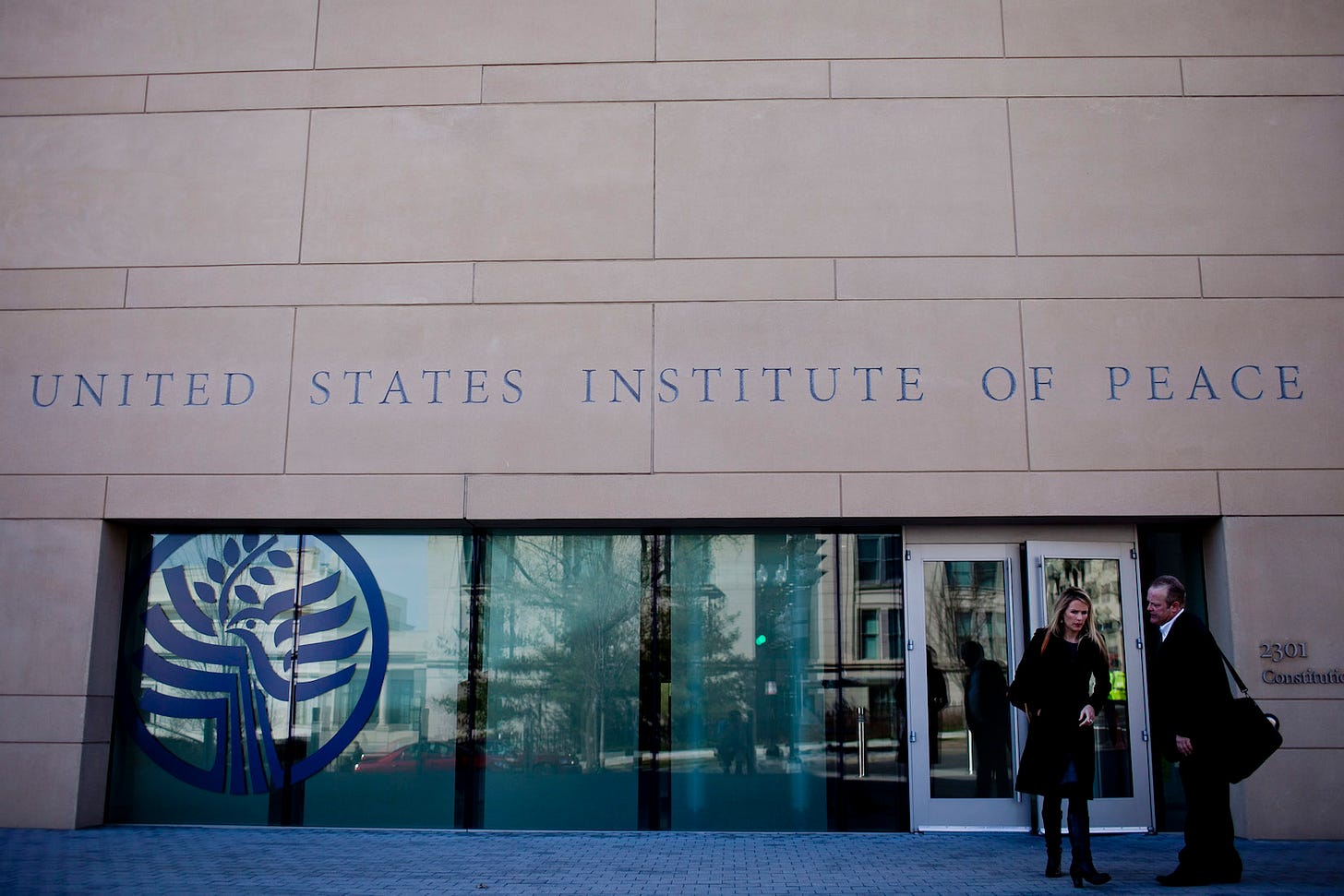Trump's "gross usurpation of power," blocked
A federal judge denounced Trump's use of "brute force" to replace board members of the U.S. Institute of Peace.

Trump’s actions have been at least temporarily blocked or voided at 161 times and counting. Don’t miss in-depth reporting on the next one.
A federal judge today voided the Trump administration’s firing of 10 board members from the U.S. Institute of Peace, his replacement of them with Elon Musk’s functionaries at DOGE, and the transfer of the think tank’s $500 million headquarters to the federal government for free.
Public actions:
Users of the civic engagement app 5 Calls contacted their reps to oppose DOGE’s dismantling of the federal government.
“Brute force”
In March, the Trump administration sent more than a dozen police officers from three state and federal agencies to take over the United States Institute of Peace, a think tank created by Congress to strategize peace-building.
In 1984, former president Ronald Reagan signed the legislation creating the USIP as an independent nonprofit to shield it from political interference, but DOGE had other designs for it.
In her ruling today, U.S. District Judge Beryl Howell denounced Trump’s “gross usurpation of power” to dismantle that nonprofit after four decades of operation.
“The President’s efforts here to take over an organization outside of those bounds, contrary to statute established by Congress and by acts of force and threat using local and federal law enforcement officers, represented a gross usurpation of power and a way of conducting government affairs that unnecessarily traumatized the committed leadership and employees of USIP, who deserved better,” Howell wrote.
The U.S. Institute for Peace has been on the Trump administration’s chopping block since this past February, when Trump issued an executive order labeling it “unnecessary.”
On March 14, Trump aide Trent Morse fired all 10 voting members of its board, and Musk’s team took over three days later, bringing the FBI, D.C. Police and the nonprofit’s own security guards with them.
“The President and his subordinates then used brute force and threats of criminal process to take over USIP’s headquarters, despite being cautioned that this organization did not fall within the Executive branch and its leadership was not subject to the President’s unilateral Executive branch removal power,” she wrote.
The showdown, documented in painstaking detail in the New York Times, was the culmination of a plan just ruled to be entirely “unlawful.”
“An interest in government officials following the law”
Judge Howell’s fiery ruling spans 102 pages, and her corresponding four-page order broadly negates the Trump administration’s action.
In a footnote, Howell made clear that the Trump administration must return the think tank’s half-billion-dollar building, by any means available.
“No precise details are set out in the order as to how the voided transfer of property shall be restored to plaintiffs, and no more should be necessary for the Administration and all of its components to comply fully and in good faith with the order issued to restore the USIP headquarters based on the declaration that the transfers undertaken by defendants were invalid and ultra vires and that defendants may not unlawfully enter or seize USIP property,” she wrote, using the Latin phrase for “beyond the powers.”
Howell found that reversing the Trump administration’s actions served the public interest.
“Putting aside USIP’s important work and any benefits such work may accrue to American citizens, the public surely has an interest in government officials following the law,” her ruling states.
Howell presided over both of Trump’s federal grand jury investigations, resulting in his thwarted prosecutions over his attempts to subvert the 2020 presidential election and retention of classified documents inside Mar-a-Lago.
The think tank’s attorney did not immediately respond to an email requesting comment.



When did we stop arresting and jailing thieves? The ongoing theft from the American people has got to stop. Who is enforcing the Constitution? Who?